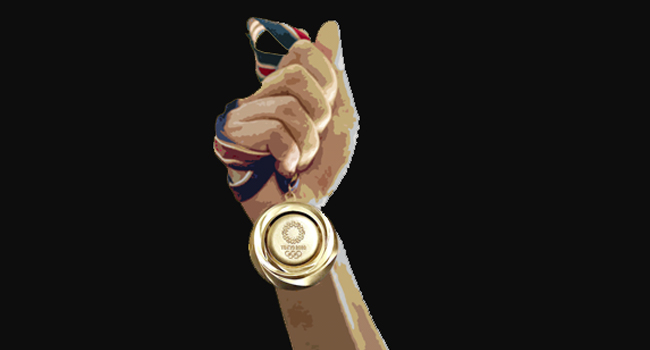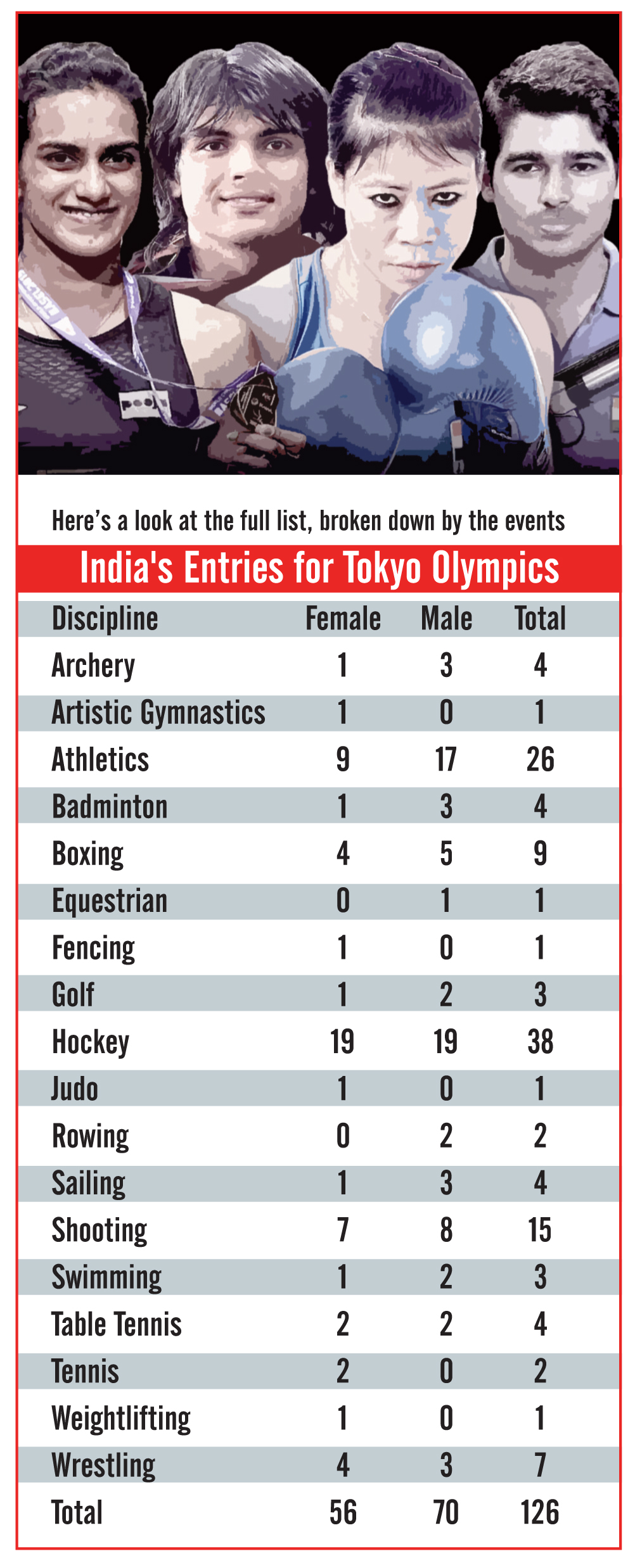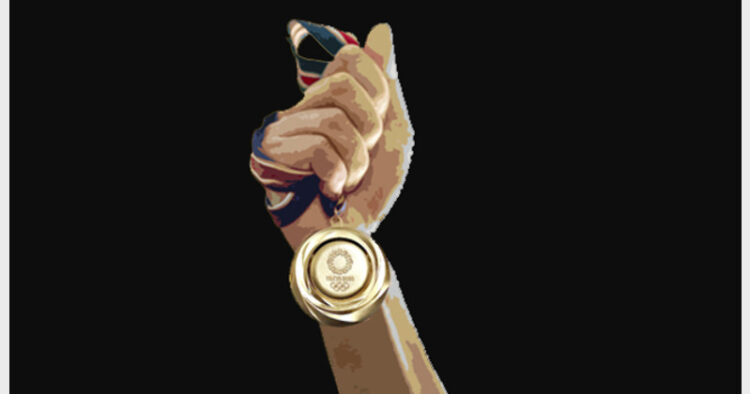Tokyo Olympics will show how further we have progressed in realising our dreams in sporting excellence and resolving to remove the impediments in growth. Though we have miles to go before we finally arrive at the sporting arena, Tokyo Olympics is the time for India to cheer for our 100-plus contingent, who will be giving their best for the pride of our Tiranga

The Flying Sikh is no more. But, his legacy lives on. Milkha Singh has been our connect to India’s Olympics journey for several generations in post-Independent India. Is the Flying Sikh’s dream to see India flying high in the Olympics truly at the stage of take-off? In less than a month from now, we will have the answer to this question.
Not all answers in the world are definitive conclusions. But, they do help us to catch the trend.
The countdown for India’s Tokyo Olympics-2020 campaign—scheduled from July 23 to August 8, 2021—has started. If the Olympics would not have been impacted by the pandemic and happened as per schedule, Milkha Singh would have witnessed his beloved country’s one more Olympics campaign in blood and flesh. But then all good things come to an end.
Many a time, the culmination of one journey paves the way for a fresh one. Will post-Tokyo 2021 see the beginning of another journey?
More than a hundred-plus strong Indian contingent will be aiming for the best-ever medal tally in the biggest-ever sporting event on the globe. Till date, London Olympics 2012 has been the best for the country in terms of number of medals won. India won 6 medals in these games: 2 silver and 4 bronze. Definitely, not befitting for a country of the scale and size of India. Till date, Abhinav Bindra is the only Indian to get an individual gold medal for the country in the history of the games. Undoubtedly, a huge underachievement considering the diversity and huge talent pool of the country.

Still, what makes us so optimistic to call the Tokyo-2021 campaign the beginning of a fresh journey? Why is Tokyo-2021 a milestone in India’s Olympics journey?
Firstly, excellence in Olympic sports, more than the end result, is about the processes. Rio Olympics-2016 may be considered as the seminal marker in terms of the Government of India’s approach to these games. For the first time gaping holes in terms of the processes were accepted and a plan was put in place to fill in the gaps.
Rio-2016 marked the end of the country’s denial mode. Immediately after the Rio Olympics, Prime Minister Narendra Modi’s Government constituted a task force to suggest ways and means to incrementally enhance the performance of India in the next three Olympics. Though, after the Delhi Commonwealth Games in 2010, there was an increased realisation for a long-term vision, progress in the direction was piecemeal instead of holistic. The task force worked diligently and suggested a road map. The Niti Aayog also came up with a working paper.
Secondly, it’s one thing to have the vision and plan paper ready; it is altogether a different thing to do the groundwork and work as per the vision. This holds more true for a country of the shape and size as ours, having limited financial resources and challenges on multiple fronts. But, importantly, the intent has been shown. The intent is loud, clear and consistent.
On the one hand, the Government has ensured the smooth execution of the ‘Target Olympics Podium Scheme’ to provide the best of the facilities and exposure to the competing athletes. On the other hand, the ‘Khelo India Games’ was unleashed and integrated into the system in the bottom-up approach. This transformative step may go a long way in increasing the talent base and thus widen the available talent pool of the athletes. Though one has to admit that the pandemic has hurt efforts in this direction in a major way, but the intent has been there throughout. ‘Khelo India Games’ is still a work in progress, which needs further improvements and improvisations, but the potential is tremendous. It could be a viable feeder system for the TOPs scheme.
Thirdly, but for a few exceptions, the earlier approach of the Government vis-a-vis athletes used to be reactive and not proactive. Athletes were remembered and felicitated when they used to win medals and left to fend for themselves before and after that. There was a culture wherein the officials and administrators acted as lords and players as their serfs. Gradually, this is changing.
In the new approach, the players are increasingly becoming the real VIPs, with the officials and the administrators being the support staff helping them reach the desired destination. The change started with the former Sports Minister Rajyavardhan Singh Rathore. Sports received a major boost with Kiren Rijiju. The latter’s proactive approach and accessibility to athletes—former and present, and officials and administrators of sports bodies—has created a healthy ecosystem wherein all the stakeholders have started operating with a certain amount of trust.
However, the further quest for improvement and excellence will now be mentored and led by the newly-appointed Union Sports and Youth Affairs Minister Anurag Thakur. He has many pluses to spearhead the ship and take it to another level.
He has got considerable exposure to India’s and global sporting ecosystems. The former head of BCCI has got grassroots experience of building world-class facilities for the Himachal Pradesh Cricket Association. More importantly, as the former president of BJP’s youth wing, he has a pulse on the youths’ aspirations. In the quest for excellence, Anurag Thakur has considerable exposure and experience in terms of the Indian sports ecosystem and global sports practices. For him, the Tokyo Olympics this year, followed by Commonwealth and Asian Games next year, will be an opportunity to further make these intentions clear and dispassionately analyse the progress and areas to be worked upon. There are ample challenges in bringing professionalism to other sports bodies, especially those in which the country has got medal prospects.
The Flying Sikh, Milkha Singh, had a dream. Milkha dreamt of India being a strong nation in Olympic sports. Irrespective of serious limitations when our country was trying to find its feet after Independence, Milkha, in his personal capacity, ignited the dream before and after the Rome Olympic games
Lastly, though India’s Olympics mission’s ultimate aim and inspiration will be to aspire to be a strong sporting nation, such as the United States, Russia, Great Britain and Australia, the approach to the eventual aim has to be our own.
Bharat, being an ancient civilisation is a treasure trove in terms of holistic living and thinking. Healthy Bharat will lead to a fitter India. And, fitter Bharat may truly aspire to be a stronger sporting nation. Prime Minister Narendra Modi’s Government’s emphasis on Yoga as a way of life, ‘Fit India Movement’ as a way of living and back to the basics in terms of food and behaviour will go a long way in making the country with the largest youth population on the globe a strong and healthy nation. Naturally, if a robust and professional sporting system backs it with more and more state-of-the-art sports infrastructure, excellence in Olympic sports will just be a matter of when, unpunctuated by ifs and buts.
The Flying Sikh, Milkha Singh, had a dream. Milkha dreamt of India being a strong nation in Olympic sports. Irrespective of serious limitations when our country was trying to find its feet after independence, Milkha, in his personal capacity, ignited the dream before and after the Rome Olympic games. India has collectively started dreaming now. We still do have our limitations, but we have got the collective resolve to surmount the hurdles and excel in the biggest global sporting platform.
Tokyo Olympics-2021 will show how further we have progressed in realising our dreams and resolving to remove the impediments in growth. Though we have miles to go before we finally arrive at the sporting arena, Tokyo Olympics-2021 is the time for India to cheer for our hundred-plus contingent, who will be giving their best for the pride of our Tiranga.
Milkha Singh too will be cheering for India, this time from the heavens above.
(The writer is the national advisor at Prasar Bharati Sports)













Comments